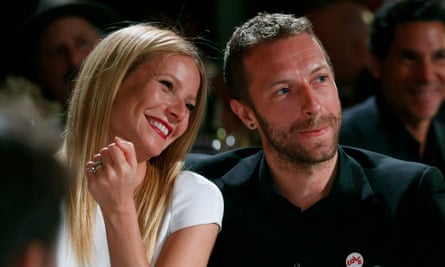Sometimes two weeks away with someone, without the blessed relief of the working day and a bit of overtime, can really clarify why you might not want to spend another day with them. A new study suggests that the number of people filing for divorce spikes after the summer holidays. Two sociologists at the University of Washington analysed 15 years of divorce filings and found that the period just after winter, and again after the summer holidays, were peak times for deciding on divorce.
The Guardian’s product and service reviews are independent and are in no way influenced by any advertiser or commercial initiative. We will earn a commission from the retailer if you buy something through an affiliate link. Learn more.
And if nobody has really been to blame for the end of the marriage, what happens next often comes as a nasty surprise to couples. “We’re still working [in] a divorce system we’ve had for decades, which is why we’ve been pressing for many years for the introduction of a ‘no fault’ divorce system,” says Nigel Shepherd, chair of Resolution, the campaigning organisation of family lawyers, and head of family law at Mills & Reeve.

In England and Wales, there are still only five ways to get a divorce and three of those involve living separately for at least two years. If you want to get divorced quickly, you have to do it on the basis of adultery or unreasonable behaviour. “You end up in what we call the blame game,” says Shepherd. “Particularly with unreasonable behaviour, when neither of you really wants to blame the other – you try to get allegations that are as mild as possible, and least upsetting as possible, but still strong enough to get over the unreasonable behaviour hurdle. People are having to kick off [divorce proceedings] with a discussion about blame. Even if you say to them, ‘This is just the system unfortunately, we have to go through this game,’ it still upsets people.”
Darren Lilly, a social media manager from Manchester, says neither he nor his former wife were at fault for the end of their marriage. They had been married for seven years and together for 17, and, “We’d just reached the end of the path. It was an amicable split but a horrendous divorce.” They did the two years’ separation, and then the divorce involved three court dates, during which Lilly represented himself. “Your life is dissected. Unfortunately, it didn’t quite work out as fairly as I’d like.” Does he think the process made it worse? “I think it did. I think the system should be made quicker. Not all marriages end because someone has been unfaithful or abusive or in any way unreasonable. You can be married pretty quickly and divorce slowly. It needs looking at to reflect modern society.”
Bev, a nurse manager from the West Midlands, would also like the process to be quicker. She and her ex-husband were married for 15 years. Their divorce was finalised in March last year, but only after her husband, who had been unfaithful, slowed it down. “I think the divorce process would be fine and easy if there was a way that the other party could be made to do things far quicker,” she says. “He just prolonged the agony. Considering I felt the wronged party, I had to pay for all the times he dragged his feet.” She spent about £1,400 in solicitors’ fees chasing him up.

There is a private members’ bill to introduce a “no fault” divorce, and Baroness Hale, deputy president of the supreme court, called for it to be introduced (a previous act, 20 years ago, which would have allowed for a more amicable process, was never implemented and was eventually scrapped). “What we really want is for the government to pick it up and introduce a piece of legislation. But it’s always been a bit of a political hot potato,” says Shepherd. Past objections have been on religious grounds, or from people who say it will make divorce too easy and undermine marriage.
Divorce law is yet to be modernised, but there have still been other changes in recent years to the way we approach the end of a marriage.
Do it yourself
Earlier this year, football presenter Gary Lineker, whose marriage to his second wife had recently ended, took issue with divorce lawyers. “It’s very easy to get married and very difficult to get divorced,” he said. “And we know that lawyers try to manipulate it to make you spend more money and basically end up hating each other.”

More and more people are choosing to represent themselves. According to a recent survey, around 40% of people no longer use lawyers in their divorces. For all Lineker’s talk of greedy lawyers, this isn’t to be considered a positive development, as it mostly comes on the back of legal aid cuts.
People who represent themselves in divorce cases may not “get the outcomes they might expect or deserve,” says Emma Pearmaine, director of family services at Simpson Millar. It can also slow proceedings down. “[Divorce] is a horrid thing to be experiencing and we need to come to a conclusion as quickly as we can to the benefit of the whole family,” she says. It also forces the other person, acting with a solicitor, to shoulder more of the costs. The consequence of legal aid cuts and people representing themselves is, she says, “affecting a whole generation of children. Previously a parent on a low income might have been eligible to go to court so they can see their child. Now if they’re not eligible, they might have to make an application themselves, or they don’t make an application at all. That suggests to me that we have a whole generation of children who are not having the right relationship with both parents.”
If a divorce is relatively straightforward, many people have found that representing yourself can work. Claire Sutherley, a finance director for a security company, West Yorkshire, got her divorce through two days before we speak, having filled in an application form in February (she didn’t need to go to court). She and her ex-husband had been separated for two years, and at that point she got a solicitor to arrange their financial situation. “The divorce itself was very simple, it was just form-filling,” she says. “I think people are fazed by it and assume they have to get legal advice and pay out a huge amount of money to go through the process itself. In my case where it was a mutual thing, it was just paperwork.”
Share it

If you’re the sort of person to share every other big moment of your life on social media, getting a divorce is no different. The rise of the “divorce selfie” has been heralded with a common theme emerging among the handful of pictures posted on Instagram – the former couple are often pictured outside a court house, clutching papers, and grinning wildly. “We’re smiling because we have done something extraordinary (We think anyway!),” wrote Shannon Neuman, a Canadian woman whose divorce selfie with her new ex-husband Chris, was shared more than 30,000 times on Facebook. “We have respectfully, thoughtfully and honourably ended our marriage in a way that will allow us to go forward as parenting partners.”

There was much hilarity two years ago when Gwyneth Paltrow announced, via her lifestyle website, that she and her husband, Coldplay singer Chris Martin, were “consciously uncoupling”. But irritating new-agey language aside, this approach seems pretty sensible, since it’s based on love and respect for the other person, and many couples now seek to working through the end of their marriage in a way that minimises conflict.
Get the app
One newcomer to the divorce scene is Splitsville, a social media app and website, which was set up by Tara Averill, a New Yorker who is divorced from the father of her two children. “My thinking was to give an entirely different point of view and voice to what divorce can look like,” she says. “I’m not trying to negate the traumatic aspects, but to give a voice and platform to the aspects that are normal and often really healthy. Often the impetus to divorce, for at least one of the couple, is coming from a healthy place and that is not celebrated or validated in mainstream culture. Often it’s a rebirth of yourself, new relationships, new discoveries and a new way to be in the world.”

It’s nicely designed (“You go on a wedding website, and it’s stunning, it’s filled with beautiful imagery, so why do we get no good design for another very valuable and extremely common life transition?”) but still a small operation – thousands of visitors come to the site to read the content on relationships and divorce, which Averill aggregates from around the web, but it has just 1,500 registered members.
On the site, people can form networks with others going through a relationship breakdown and post in the forum, and it is proving popular with the party that wants a divorce, seeking advice and support. “We all pity the person who was left, we all honour that broken heart but we don’t honour the broken heart of the individual who wants to leave and the courage to call it,” says Averill. “And so I thought, to balance things out, it would be helpful to have a space for people who wanted to end their relationships and wanted a safe, non-judgmental space to talk about why it was not working.”
Celebrate it
In Los Angeles, Christine Gallagher, a psychotherapist, runs a couple of divorce parties a month. She saw how throwing a party to mark the end of a divorce was helpful to a friend, and started planning parties for others (she has also written a few books on the subject). Some are themed – one of the favourites is based on the Survivor reality TV show, where the venue is decorated like a desert island and lobster is served. “We do custom parties where we take something from the break-up and build a theme around it,” she says. One had a golf theme – a woman’s husband told her he was taking up golf, but eventually she realised his clubs had never been used. “We did a whole golf themed divorce party where people wore golf clothes, we had a pro come in and teach the ladies how to swing the clubs,” she says. It’s “an occasion to get emotion out,” says Gallagher. “Divorce is the one landmark event in life that we don’t have an organised event for, where your family and friends come in and help you, and I think a divorce party fills that space. I think it can be very healthy.”
Get it over with in a weekend
In 2011, Jim Halfens, an entrepreneur from the Netherlands, set up Divorce Hotel, a kind of breakup minibreak. He had seen a friend go through a divorce and thought it seemed much more complicated than it needed to be, so came up with the idea of getting everything done in one weekend: “You know when it starts, when it ends and what it costs,” he says. “The divorce industry benefits from making divorce procedures too complicated.”
At the moment, Divorce Hotel is only running in the Netherlands and New York state in the US, but he is planning to bring it to the UK. The soon-to-be-former couple go to a hotel, away from partisan in-laws or friends, and on Saturday morning sit down with a lawyer who is specially trained in mediation. Talks continue all weekend – sometimes involving accountants, estate agents and counsellors – before papers are signed on Sunday evening.
When papers are signed, sometimes it’s really emotional and people choose to play their favourite song for the last time
The process is not for everyone, says Halfens, and nearly a third of couples who approach him are turned away. For a start, a couple need to be able to talk to each respectfully, in person, over a whole weekend. Custody of children is not discussed, so a parenting plan has to already be in place. “If you’re not able to wish the other person a positive future, you’re not suitable to come to us,” he says. “You need to be dedicated. You have a deadline and you know that if you don’t make it before Sunday evening, everything is for nothing. It’s a very important goal to realise. It’s for the couple to make a positive, bright new start, not irritate each other and delay the procedure for months.”Is a weekend enough time to uncover hidden assets? “We don’t have weeks to find out about bank accounts,” says Halfens. “People need to be 100% transparent about possessions. We have had situations where the couples were not honest with each other, for example the mediator finds out there is a house in Switzerland or a bank account. Then it all stops, because divorce hotel principles are fundamentally based on mediation.”
When the papers are signed, some couples say a chilly goodbye and leave, but most of the time, it’s quite special, says Halfens. “Sometimes it’s a moment of joy, sometimes it’s really emotional and people choose to play their favourite song for the last time.”
Bird’s nest parenting

Typically, if you have children and shared custody, once you are divorced the kids shuttle between your homes, but a relatively new idea, imported from the US, is that the parents should be the ones to do all the moving – and it’s catching on. The family home (the “nest”) is maintained – either the existing one, or a new one – and the children stay there, while each parent takes it in turn to move in for a few days every week, while the other one stays at a flat. The idea is that the children get continuity during a time of disruption – their own bedroom, toys, school stuff in the same place – and it can work out better, financially, for the family because only one property needs to be big enough for the children, and costs can be shared. It would be up to the family to decide if this was right for them, not a judge. “I can’t envisage a situation where a court would [impose it],” says John Bolch, a former lawyer. It may come with challenges in future, such as what happens if both or either parents meet a new partner. “It relies pretty heavily on the parties remaining on good terms.”

Comments (…)
Sign in or create your Guardian account to join the discussion